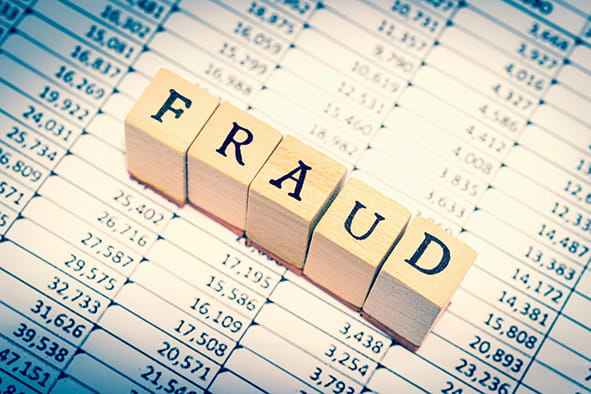You have been thinking about putting your hard-earned money into certain investment schemes, but can’t stop worrying about the various scams floating around. Shilpa Shah lists what you need to watch out for.

Beware! Whenever there is money involved, there will be scammers trying to steal.These fraudsters are aware that many investors driven by their aspirations and greed are on the lookout for high returns or quick gains. Exploiting this human tendency, these scammers have duped millions across the world using deceptive practices. In fact, throughout history, you can find scams of varied nature and proportion and with time and easily available technology, they are getting even more complex. And hence, even if you are a seasoned investor or a first-time investor, you really need to educate yourself about these different types of frauds and know how to protect yourself from such scams.

Investment Fraud: Real Estate
Most Indians consider real estate as a good investment avenue. However, there have been multiple cases of scams plaguing this sector. These scams vary from legal frauds, false promises or even enticing the investors with the popular ‘buy-1 and get-something free’ offers. The most commonly seen fraud in real estate is the deliberate delay in completion of a project so as to get enough number of gullible buyers and then the builder’s ‘disappearing act’ with all the money, leaving behind a trail of helpless buyers. Sometimes, the builder even starts a new project with this money. This leads to delaying of both projects and causes the investors heavy losses, as their money is blocked endlessly. Hence, if you are planning to invest in realty, check for the builder’s reputation and also visit his earlier as well as proposed project site. Before signing on, you must also consult a legal advisor to understand all the property documents. Ensure that the realty project has all the requisite government and bank approvals. Be on extra alert, if the builder shares only few documents or tries to avoid showing all the related approvals. After all, as they say, it is better to be safe than sorry.

Investment Fraud: Ponzi Scheme
It is an investment fraud notoriously named after Charles Ponzi, (1920s) who conned thousands to invest in a complex scheme involving postage stamps. The promoter of a Ponzi scheme, who could be an individual or a company, promises the clients a large profit on their investments, at little or no risk. And then, instead of investing or managing the money to make it grow as promised to clients, the sole focus is on attracting new clients to make investments and to lure existing investors into pumping in additional money. This fresh money is used to pay returns to the original investors to keep them invested. Therefore, these schemes need constant influx of new money to stay afloat. Eventually, when investments stop flowing in or when many investors attempt to get their money out, the scheme crashes, leaving the investors high and dry. Remember, there is no free lunch, so never let your guard down. And if you are ever offered a scheme that promises guaranteed high returns with little or no risk, with complex and secretive investment strategies or claims consistent returns irrespective of market conditions, then just run, before the ‘Ponzi’ hits you hard!

Investment Fraud: Pump And Dump
Even though the micro-cap stock market has a long history of fraud, yet investors can’t resist its allure to make in some quick profits. In this scheme, the fraudster acquires control over a large volume of a very low-priced stock of a small, thinly-traded company, usually known as Penny stocks. To create demand for the stock and pump its price, the fraudster starts spreading false and misleading information using avenues such as press releases, spam e-mail, internet discussion group postings, social media and other unverified sources. This constant hammering tricks the investors into believing that this stock is a good investment, leading to a buying demand at increasingly higher prices. The fraudster then dumps (sells) his large volume of shares at a high price, thus making huge profits and simply vanishes. There have also been cases where, the fraudster and the promoters of the stock are partners in crime. Once the manipulators disappear, the lack of promotion exposes the falsely created demand, causing the stock price to crash, leaving behind hundreds of broke investors with piles of absolute worthless stock. Earlier, this kind of scam was carried out by telemarketing using cold calling, but now technology has opened up new avenues, so do not invest solely on the basis of any information received on internet, such as spam emails etc. For an investor, due diligence can never be underestimated. Never trust ‘inside information’ blindly.
Investment Fraud: Gold
Traditionally gold has been one of the most popular investments in India. In fact, the Indian households possess the largest amounts of gold in the world. However, while investing in this precious metal, you need to be careful as there are several ways in which you could get fleeced. These masterminds advertise everywhere on the internet to entice investors to buy gold with their fake yet attractive websites and attempt to win trust by providing false testimonials and also guarantee high returns on investments. Some can use smooth talking telemarketers to convince potential investors for a down payment for loan to buy gold, claiming that their gold would either be transferred or stored in a safe vault on their behalf. Some investors fall into such gold trap and realise that they have been duped, only when these operators disappear overnight without a trace.
So beware, avoid buying gold from unknown dealers from distant places, where money needs to be sent by bank transfer. It is in your best interest to buy gold only from reputed and established dealers, preferably from your own city, so that you can do their background check. Also, if someone tries to sell you gold at much cheaper price than the existing market rate, don’t get lured, as it could be a potential investment fraud.Never forget that all that glitters is not gold!
Now that you know of the possible frauds while investing, you should exercise caution.
Don’t get carried away by gimmicky investments, do your research well and remember to be good, not greedy.


